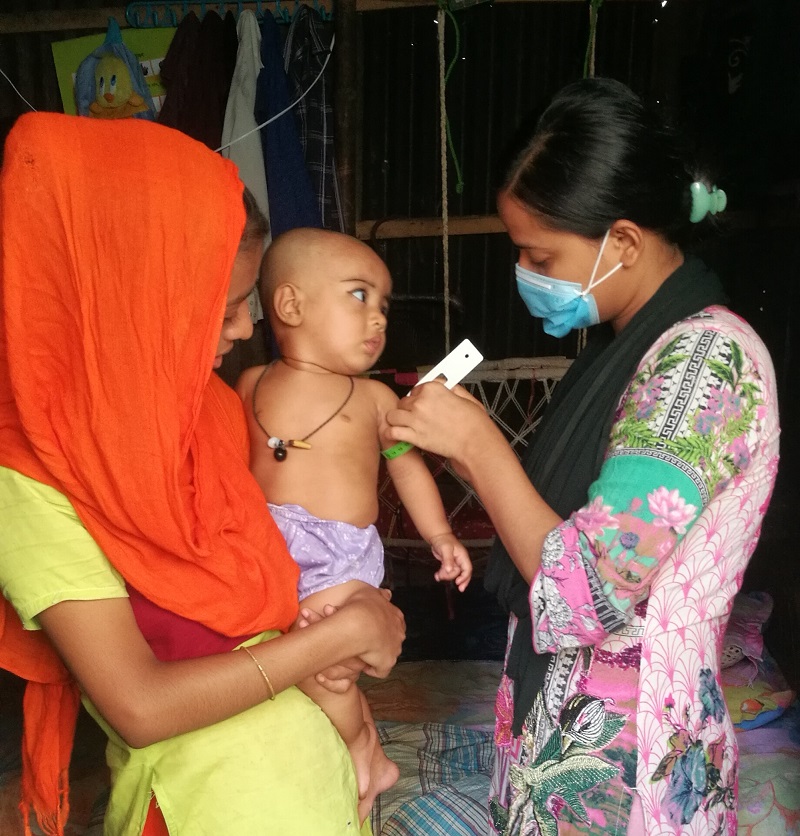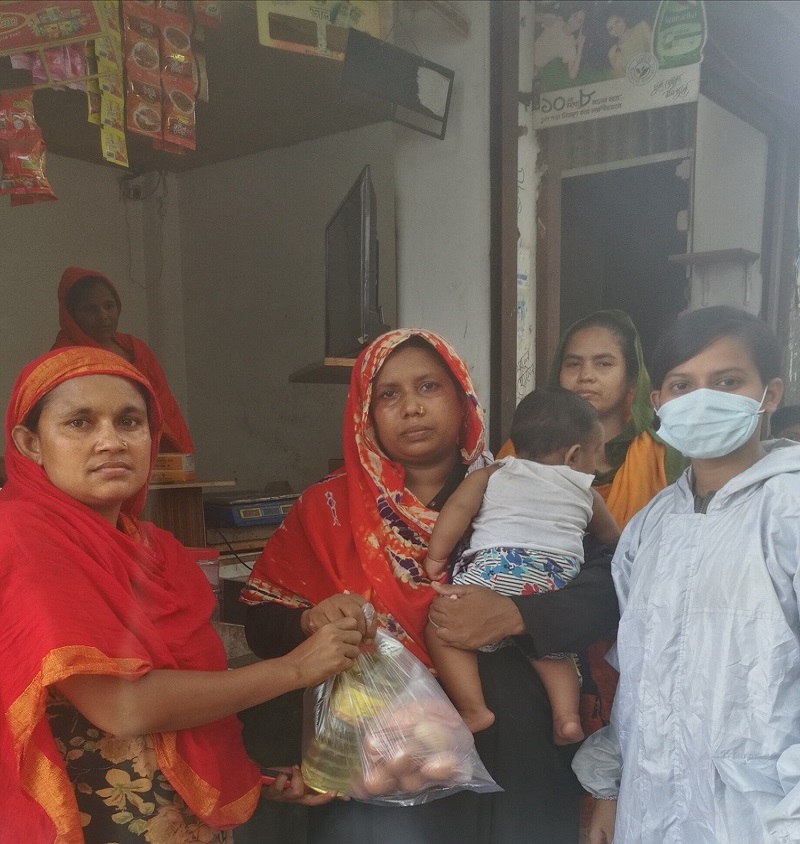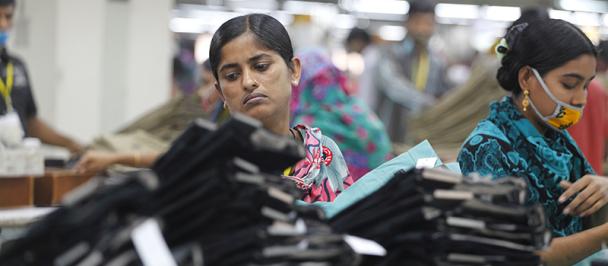For the young people who are passionate about working for their communities, field work is key for bringing positive change. Tanjina Akther Tania is one such woman, a resident of Korail urban slum, who has been working with multiple organisations and NGOs for the past five years to bring change.
“I wanted to participate in bringing real change through various development activities in my area,” said Tanjina, who has been working in her community Korail even during the pandemic.
A nutrition facilitator at UNDP’s Livelihoods Improvement of Urban Poor Communities (LIUPC) project, Tanjina explained her role, “My responsibility entails working with pregnant and breastfeeding women. I go to their houses and provide counselling services so that the pregnancy and care for infant can proceed smoothly.”
“I try to ensure that new mothers can nurse their babies for six months at least and provide additional food besides breast milk for 24 months to facilitate the proper growth of the children. We also provide and monitor educational grants and motivate the children so that they don’t drop out of schools,” she explained.
The project also provides business grants and guidance to underprivileged women without work so that they can start small enterprises.
Tanjina watches in amazement as her work brings change in the community. “I can see the changes happening in my area through these activities, which motivates me to work even harder. There was a woman in the area whom I started counselling when she was seven months pregnant.”
“When I went for the regular sessions and advised her to eat more than the usual amount, she used to say that her mother-in-law is strict about extra food intake. The mother-in-law wouldn’t let her get the necessary nutrition due to superstitions about the correct amount of food intake for pregnant mothers,” Tanjina recounted.
“I became very upset hearing that and talked with the mother-in-law as well. I tried to make her understand that a crucial growth period of a baby is while it’s still inside the mother’s womb, which is why it’s important that she gets extra food and rest,” said Tanjina.
When she went to the same family for another session the next month, she found that they were taking better care of the would-be mother. They still weren’t giving her the prescribed mineral tablets properly and weren’t taking her for regular check-ups, so Tanjina strongly advised for those.
“The family listened to me. And eventually a healthy baby was born. That made the mother-in-law realise her mistakes. I consider that as a success when it comes to my work,” Tanjina said.
There were other instances where the family members of pregnant women wanted to get the delivery done by untrained midwives. Tanjina told them that it is necessary to get the delivery done by a trained midwife, otherwise it can risk the lives of both the mother and the baby.
The results have been positive so far, they are more aware than they used to be, and are working to create awareness among others as well.
Tanjina believes her work around maternal health is necessary at all times, even if there is a pandemic going on. “In fact, I believe it’s more necessary now, as people have limited access to healthcare. It is important that mothers stay informed,” she said.
“Although it is difficult to go from household to household now, I am doing the best I can to provide pregnant women and new mothers the guidance they need,” Tanjina added.
As a student of child development, Tanjina believes the country’s future lies within its children. She hopes to continue working in this sector in the future and believes her work with UNDP will bring sustainable change in the lives of the urban poor.
United Nations Development Programme’s Livelihoods Improvement for Urban Poor Communities (LIUPC) project is tackling the many issues faced by urban poor communities in 12 city corporations and 24 municipalities of the country.
It addresses issues of education, health, employment local government involvement, community organizations’ capacity development, infrastructure& housing and skill-building, etc.
It is one of the largest urban development projects in the world, and with the dedicated work of hundreds of field-level workers such as Tanjina, the project has already made strides in reducing poverty and inequality.

 Locations
Locations

